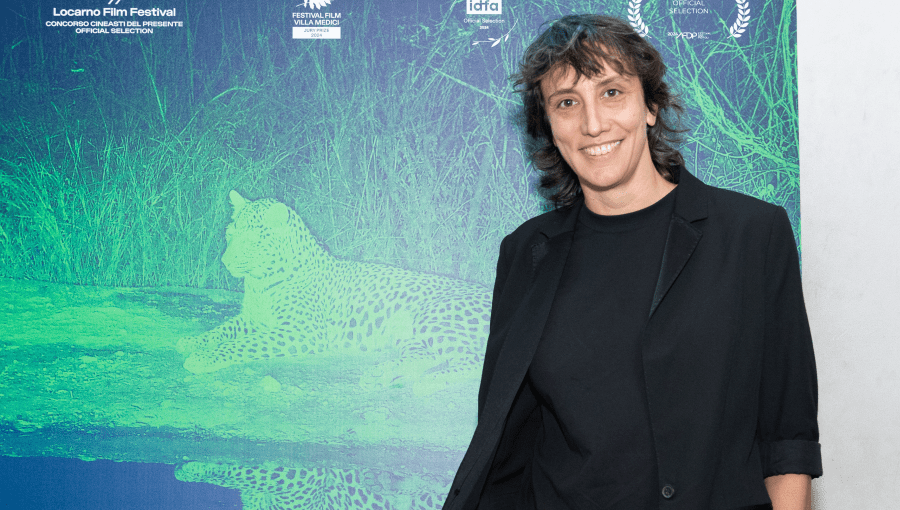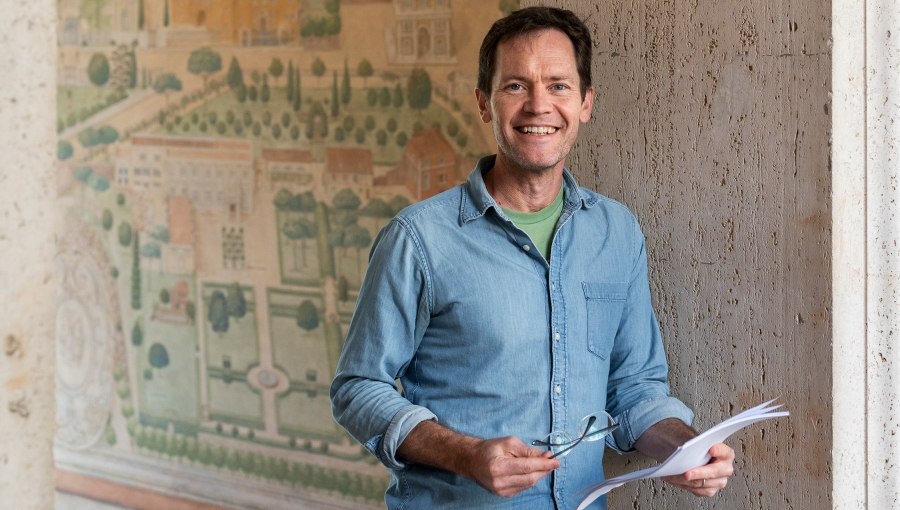Teaching as an Act of Generosity: Professor Carolina De Luca
Professor Carolina De Luca was born in Rome. She earned a B.A. in English Literature from Hunter College of the City University of New York (CUNY) and an M.A. and M.Phil. in Comparative Literature from the CUNY Graduate Center. She teaches English Composition and Public Speaking at JCU.

Carolina De Luca
What do you like about teaching at John Cabot?
I love that JCU, with students from 80 different countries, is located in Rome’s historical center: it is sheer good fortune to be able to find such a melting-pot of an environment smack in the middle of our capital. I think we have a rather unique working environment too: most colleagues are kind, collaborative, and I personally feel that I am allowed to be very creative in my approach to the material I teach. I never take this for granted.
Some say that good writing simply cannot be taught. How do you approach teaching composition?
The irony of teaching composition is that geniuses like Hemingway and Shakespeare would have been placed into English Composition 110 had they been called back to earth and applied to JCU. And what could I have possibly taught them?
In most cases, it is possible to turn raw, untapped potential for expression into solid and effective writing. And there is always room to improve with good guidance: average talent can become good talent; good talent can become awesome talent.
As for approaches, there are simply no shortcuts to writing well. A composition student has to practice and practice, edit and edit. What always seems to help this painstaking process is reading: the more you read, the more you will intuitively know what do to with a sentence on the page. I like to assign complex, elegant, sophisticated non-fiction written by authors of fiction. Difficult texts that require extensive use of the dictionary are the way to go. I tell my students to read as much possible.
Indeed, it is close to impossible to teach someone to write if the person does not like to read. It is equally hard to teach someone who cannot take advice. Writing is intensely personal, and some students are very sensitive to critique.
Tell us about your Public Speaking class. What makes a great speech?
I think great ideas make a great speech. There is this notion nowadays that great speakers are those who exude confidence. Of course, confidence is a big part of the game, but I am a content-driven person and so, for me, there is no speech without a brilliant idea. Women are usually less cocky than men on stage; women appear less confident and this penalizes them. What most people do not understand is that there is strength in vulnerability. I am not a fan of loud personalities who like to listen to themselves talk.
As for advice, be yourself and speak your heart. Practice mindful meditation every single day and learn different breathing techniques. Nothing soothes a fearful mind more than the ability to control the breath. Breathing techniques teach you to stand tall, strong, grounded.
Name 3 books that have had an impact on you and briefly explain why.
Sylvia Plath’s Collected Poems. I think she’s the greatest American poet of all time. Song of Solomon by Toni Morrison: She is a master storyteller and her prose reads like music. Her rhythm is mesmerizing. Dante’s Divine Comedy: More than a poem, Dante’s masterpiece is a miracle. Every time I reread it (in Italian, of course) I am baffled by it.
Any advice for aspiring writers/English majors?
Never write thinking that you ought to please others. Write from a place of utter urgency and please yourself. Write about stuff that releases you: write about the secrets that would have killed you had they stayed inside. If you need to expose family, choose a pseudonym.
When did you first decide to become a teacher?
The love for my profession began as a rather unconscious decision. I remember very distinctly, around the age of 5, playing “classroom” for entire afternoons. I would impersonate the teacher but also two other key players in the classroom: the bully, whose name was Kent, and the teacher’s pet, Betsy. Kent and Betsy liked each other but had a tumultuous relationship. I remember trying to mediate between the two so that they could get along in the class. I remember giving them both good grades because they were both smart albeit in different ways. I enjoyed helping them, giving them tools to overcome difficulties.
Teaching is a kind of service we do for others; it is an act of generosity. One has to be giving. Otherwise, forget it. I am a natural-born giver, so I fell into the profession seamlessly and inevitably. I never regretted it.





